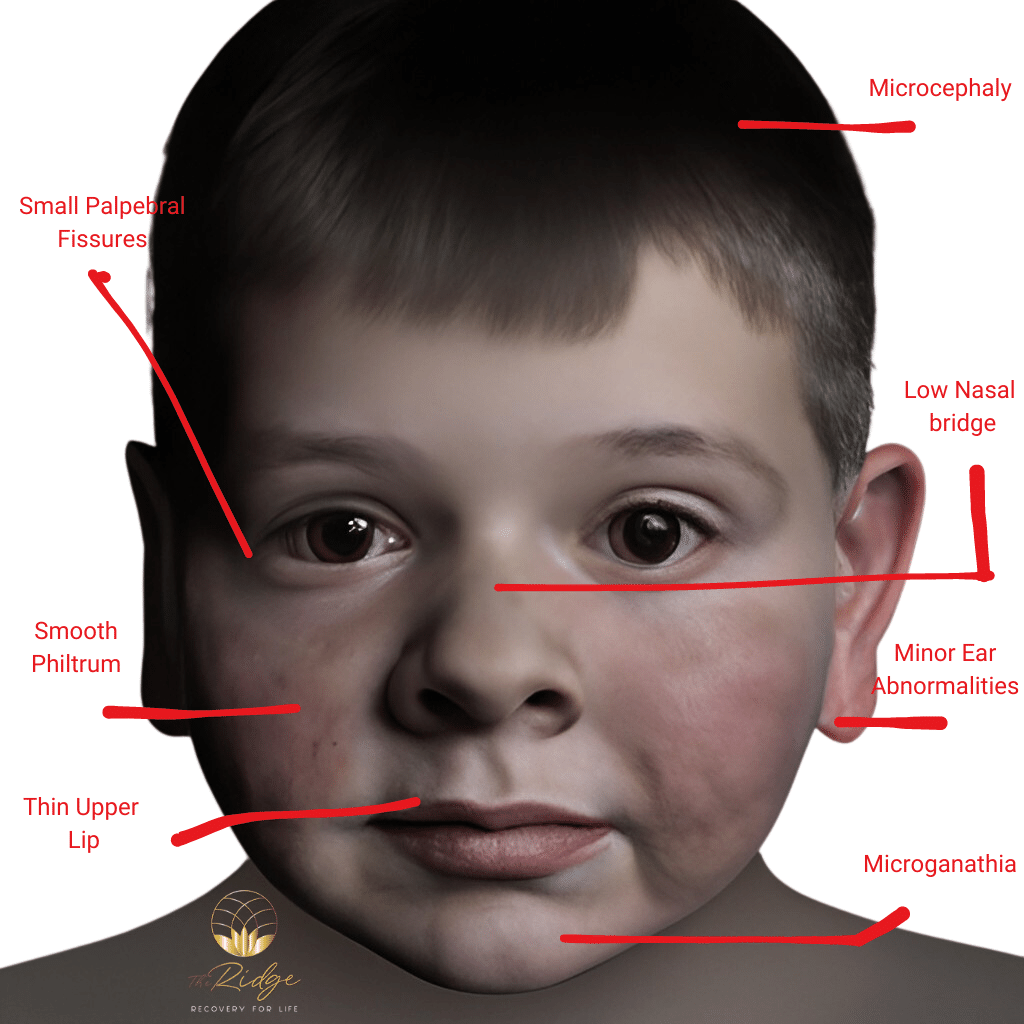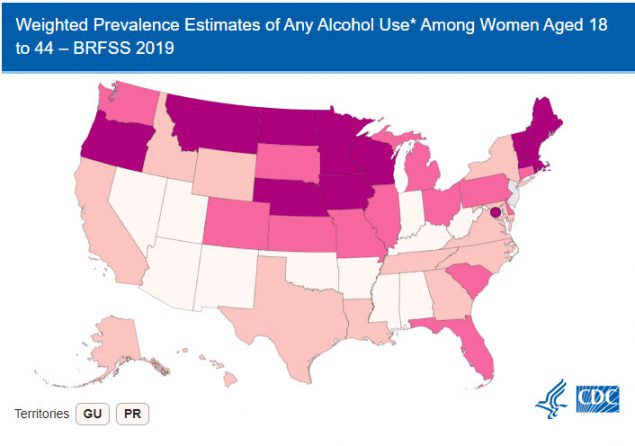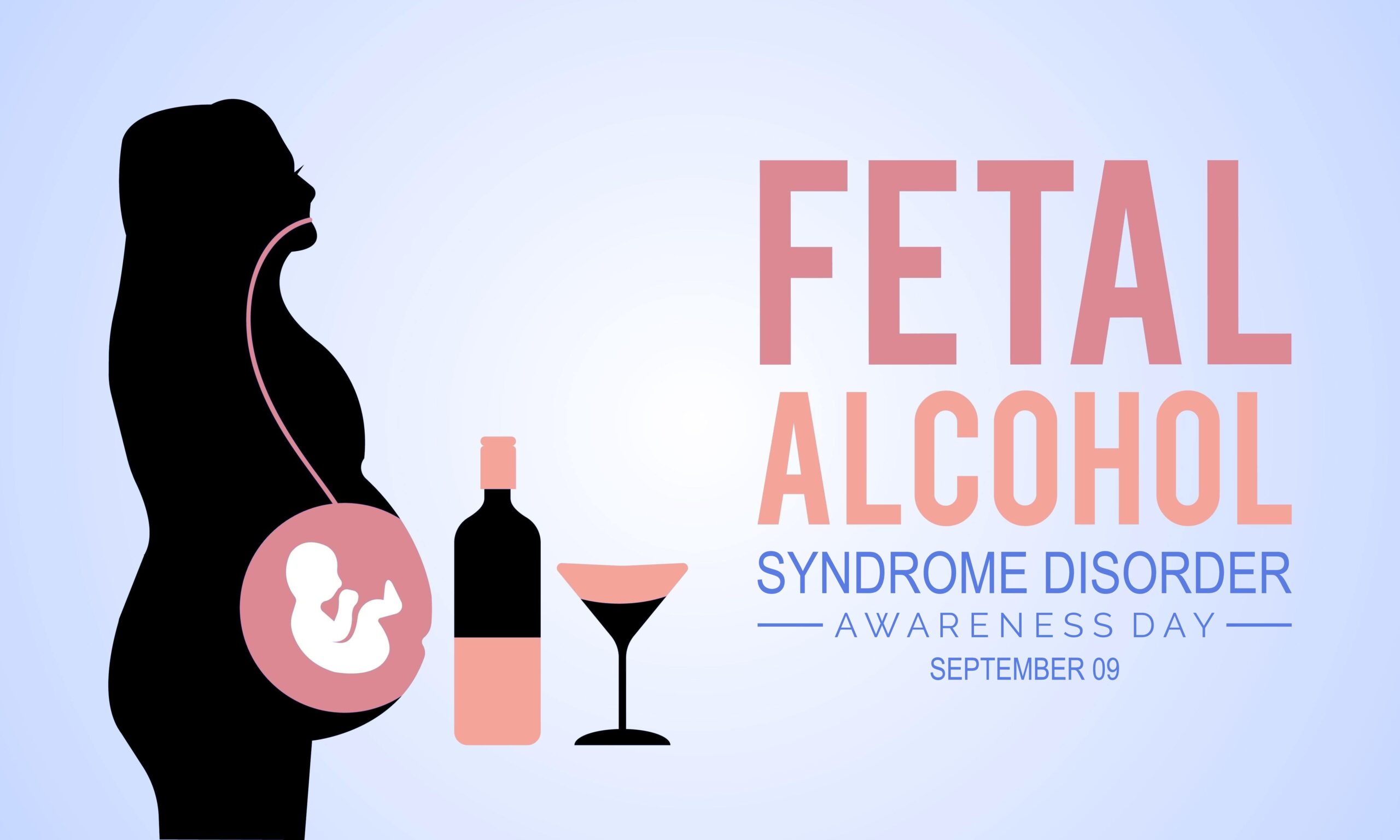Key Takeaway:
- Fetal Alcohol Syndrome (FAS) is a preventable condition caused by alcohol consumption during pregnancy, leading to lifelong physical, cognitive, and behavioral challenges for affected individuals.
- FAS affects an estimated 0.5 to 2 cases per 1,000 live births globally, while the broader category of FASDs impacts 2 to 5 percent of children in the United States.
- Abstinence from alcohol during pregnancy is the most effective way to prevent FAS, emphasizing the importance of raising awareness and promoting education about the risks of prenatal alcohol exposure.
- FAS Awareness Day, held annually on September 9th, aims to increase public understanding of FAS and FASDs, encourage prevention strategies, and support affected individuals and families.
Fetal Alcohol Syndrome (FAS) is a highly preventable condition that continues to impact countless lives around the world. The symptoms that occur as a result of fetal alcohol syndrome are referred to as Fetal alcohol spectrum disorders (FASDs) and are categorized as a group of conditions that can occur when a fetus is exposed to alcohol prior to being born. To understand the severity of Fetal Alcohol Syndrome, it’s important to understand the causes and symptoms of Fetal Alcohol Spectrum Disorders which can have devastating effects including physical problems and problems with behavior and or learning disabilities. Many people with FASD experience multiple different symptoms. a mix of these problems. As we strive to raise awareness about this disorder, it’s crucial to understand its causes, symptoms, and how to prevent it. In this blog post, we will explore the ins and outs of FAS and provide resources for those affected by the condition. By educating ourselves, we can work together to minimize its occurrence and support those living with FAS.
What is Fetal Alcohol Syndrome (FAS)?
Fetal Alcohol Syndrome (FAS) is a developmental disorder resulting from prenatal exposure to alcohol. It is characterized by a range of physical, cognitive, and behavioral symptoms that can vary in severity. FAS is the most severe form of a broader category of disorders known as Fetal Alcohol Spectrum Disorders (FASDs).
A brief history and prevalence of FAS:
FAS was first identified in the early 1970s, and since then, awareness and research on the condition have grown significantly. The prevalence of FAS varies globally, with estimates ranging from 0.5 to 2 cases per 1,000 live births. However, when considering the broader category of FASDs, the prevalence is estimated to be much higher, affecting as many as 2 to 5 percent of children in the United States.
The importance of awareness and education:
Increasing awareness and education about FAS is critical for several reasons. First, understanding the causes and risk factors can help prevent new cases by encouraging pregnant women to abstain from alcohol. Second, early diagnosis and intervention can significantly improve the long-term outcomes for individuals with FAS. Finally, promoting awareness and education can help reduce the stigma associated with FAS and foster greater understanding and support for those affected by the condition.
What Are The Causes Of Fetal Alcohol Syndrome?
Fetal Alcohol Syndrome (FAS) is primarily caused by a pregnant woman consuming alcohol during pregnancy. When alcohol is ingested, it enters the bloodstream and can easily cross the placenta, reaching the developing fetus. This exposure to alcohol can interfere with the normal growth and development of the fetus, leading to the physical, cognitive, and behavioral symptoms associated with FAS.
The risk and severity of FAS are influenced by various factors, such as:
- Timing and amount of alcohol consumption: The more alcohol consumed during pregnancy and the longer the period of exposure, the higher the risk of FAS. However, even low to moderate amounts of alcohol can have adverse effects on the developing fetus.
- Individual differences: Genetic and environmental factors can play a role in determining how susceptible a fetus is to the effects of alcohol. This can explain why some fetuses are more affected by alcohol exposure than others, even when exposed to similar levels of alcohol.
- Maternal factors: The mother’s age, overall health, nutritional status, and use of other substances (such as tobacco or drugs) can also influence the risk and severity of FAS in the child.
Preventing FAS is straightforward: pregnant women should abstain from alcohol consumption throughout their pregnancy. This is because there is no known safe amount of alcohol that can be consumed during pregnancy without the risk of causing harm to the developing fetus. By avoiding alcohol while pregnant, women can significantly reduce the chances of their child being born with FAS.
How can fetal alcohol syndrome be avoided (prevention techniques)?
Preventing Fetal Alcohol Syndrome (FAS) is centered around avoiding alcohol consumption during pregnancy. Here are some effective prevention techniques that can help expectant mothers and women planning to become pregnant:
- Abstinence from alcohol: The most effective way to prevent FAS is to abstain from alcohol entirely during pregnancy. There is no known safe amount of alcohol consumption during pregnancy, so avoiding it altogether is the best approach.
- Family planning: Women who are planning to become pregnant should stop consuming alcohol as soon as they start trying to conceive. This is because alcohol can have harmful effects on the fetus even in the early stages of pregnancy, sometimes before a woman realizes she is pregnant.
- Educate and support: Raise awareness about the dangers of alcohol consumption during pregnancy among family members, friends, and partners. Providing support and encouragement can help pregnant women maintain a commitment to abstaining from alcohol throughout their pregnancy.
- Seek professional help: If a pregnant woman is struggling with alcohol addiction or finds it difficult to stop drinking, she should seek professional help from a healthcare provider, counselor, or support group. Many resources and programs are available to help pregnant women overcome alcohol addiction and maintain a healthy pregnancy.
- Create a healthy environment: Surrounding oneself with a supportive network of people who understand the importance of alcohol abstinence during pregnancy can make it easier for expectant mothers to stay committed to their decision.
By following these prevention techniques, the risk of Fetal Alcohol Syndrome can be significantly reduced, ensuring a healthier outcome for both mother and baby.
What Does Fetal Alcohol Syndrome Look Like?
Fetal Alcohol Syndrome (FAS) presents itself through a combination of physical, cognitive, and behavioral symptoms. While the severity and specific manifestations can vary among individuals, common signs of FAS include:
-
Physical features:

- Distinctive facial features: Individuals with FAS often exhibit a specific pattern of facial abnormalities, such as a smooth philtrum (the groove between the nose and upper lip), thin upper lip, and small eye openings (short palpebral fissures).
- Growth deficiencies: Children with FAS may have a lower-than-average height and weight, both before and after birth. These growth deficiencies can persist throughout their lives.
- Organ abnormalities: Some individuals with FAS may experience structural or functional abnormalities in their organs, such as heart defects, kidney problems, or hearing and vision impairments.
- These symptoms are referred to as Fetal Alcohol Syndrome Face since they can be easily recognizable.
-
Cognitive symptoms:
- Intellectual disabilities: Individuals with FAS may have lower-than-average IQ scores and struggle with learning, memory, and problem-solving tasks.
- Attention difficulties: Children with FAS often have trouble focusing and may be easily distracted, which can affect their academic performance and social interactions.
- Speech and language delays: FAS can lead to delays in speech and language development, making it difficult for affected individuals to communicate effectively.
-
Behavioral symptoms:
- Poor impulse control: Individuals with FAS may exhibit poor impulse control, leading to difficulties in social situations and an increased risk of engaging in risky behaviors.
- Hyperactivity: Children with FAS may be more likely to display hyperactive behaviors, which can contribute to attention difficulties and social challenges.
- Emotional and social issues: FAS can impact an individual’s emotional regulation and social skills, leading to difficulties in forming and maintaining relationships, understanding social cues, and coping with emotions.
It’s important to note that not all individuals with FAS will display all of these symptoms, and the severity of these symptoms can vary widely. Early intervention and appropriate support can significantly improve the long-term outcomes for those affected by FAS.
Fetal Alcohol Syndrome (FAS) Statistics
Fetal Alcohol Syndrome (FAS) is a pressing public health concern that continues to impact the lives of countless children and families worldwide. As a preventable disorder, understanding the prevalence and consequences of FAS is crucial for promoting awareness and encouraging preventative measures. FAS occurs in an estimated 0.5 to 2 cases per 1,000 live births globally, while the broader category of Fetal Alcohol Spectrum Disorders (FASDs) affects an alarming 2 to 5 percent of children in the United States. These statistics highlight the need for increased education on the risks of alcohol consumption during pregnancy and the potential lifelong effects it can have on a child’s physical, cognitive, and behavioral development.
Using medical and other records, CDC studies have identified about 1 infant with FAS for every 1,000 live births in certain areas of the United States.1 The most recent CDC study analyzed medical and other records and found FAS in 0.3 out of 1,000 children from 7 to 9 years of age. Center For Disease Control
We conducted an internal study that assessed search volume for fetal alcohol syndrome using Google search trends and found interesting results that correlate with states that experience the highest rates of fetal alcohol syndrome.


Source: https://www.cdc.gov/ncbddd/fasd/data.html
Fetal Alcohol Syndrome Awareness Day
Fetal Alcohol Syndrome (FAS) Awareness Day is an annual event held on the 9th of September, aimed at raising public consciousness about the dangers of alcohol consumption during pregnancy and the devastating effects it can have on a developing child. The date symbolizes the nine months of pregnancy, emphasizing the importance of abstaining from alcohol throughout this critical period. On this day, communities, healthcare professionals, educators, and advocates come together to spread the message about FAS prevention, share resources, and support affected individuals and families. By increasing awareness and understanding of FAS and Fetal Alcohol Spectrum Disorders (FASDs), FAS Awareness Day contributes to the ongoing effort to reduce the prevalence of these entirely preventable conditions and promote healthier pregnancies and brighter futures for children around the world.

In addition, the CDC has free training that are accessible year-round for providers to increase their knowledge of FAS.
FAQs On Fetal Alcohol Syndrome
Is there a safe amount of alcohol that can be consumed during pregnancy?
There is no known safe amount of alcohol consumption during pregnancy. To minimize the risk of Fetal Alcohol Syndrome (FAS) and other Fetal Alcohol Spectrum Disorders (FASDs), it is best to abstain from alcohol entirely during pregnancy.
Can FAS be diagnosed before birth?
While FAS cannot be definitively diagnosed before birth, prenatal alcohol exposure may be identified through maternal self-reporting or biomarkers. Ultrasound examinations can sometimes detect specific growth and structural abnormalities, but a conclusive diagnosis of FAS is typically made after birth based on physical, cognitive, and behavioral symptoms.
Are the effects of FAS permanent?
The physical, cognitive, and behavioral effects of FAS are generally considered permanent, as the damage caused by prenatal alcohol exposure is irreversible. However, early intervention and appropriate support can significantly improve the long-term outcomes and quality of life for individuals with FAS.
Can FAS be treated or managed?
While there is no cure for FAS, early intervention and a comprehensive treatment plan can help improve outcomes. This may include special education services, behavioral therapy, speech therapy, occupational therapy, and medications to address specific symptoms or co-occurring conditions.
How common is FAS?
The prevalence of FAS varies globally, with estimates ranging from 0.5 to 2 cases per 1,000 live births. However, when considering the broader category of FASDs, the prevalence is estimated to be much higher, affecting as many as 2 to 5 percent of children in the United States.
Can fathers contribute to the risk of FAS?
While the primary cause of FAS is maternal alcohol consumption during pregnancy, paternal alcohol use may indirectly impact the child’s development. Paternal alcohol consumption can potentially affect sperm quality, which might contribute to genetic or epigenetic changes in the developing fetus. However, more research is needed to fully understand the relationship between paternal alcohol use and FAS risk.
Are some babies more at risk of developing FAS than others?
Individual susceptibility to FAS can be influenced by genetic and environmental factors, as well as maternal factors such as overall health, nutrition, and use of other substances. This means that some fetuses may be more affected by alcohol exposure than others, even when exposed to similar levels of alcohol.
Get Help For Alcoholism Prior To Pregnancy
In conclusion, Fetal Alcohol Syndrome (FAS) is a preventable yet enduring public health issue with lifelong consequences for affected individuals and their families. The physical, cognitive, and behavioral challenges faced by those with FAS underscore the importance of raising awareness about the risks associated with alcohol consumption during pregnancy. By promoting education, prevention, and early intervention strategies, society can work together to reduce the prevalence of FAS and support affected individuals in achieving their full potential. Remember, the most effective way to prevent FAS is complete abstinence from alcohol during pregnancy, ensuring a healthier future for both mother and child. If you are struggling with substance abuse and are considering having a child, it’s prudent to seek help immediately for alcohol use disorder, drug addiction or polysubstance use disorder.

